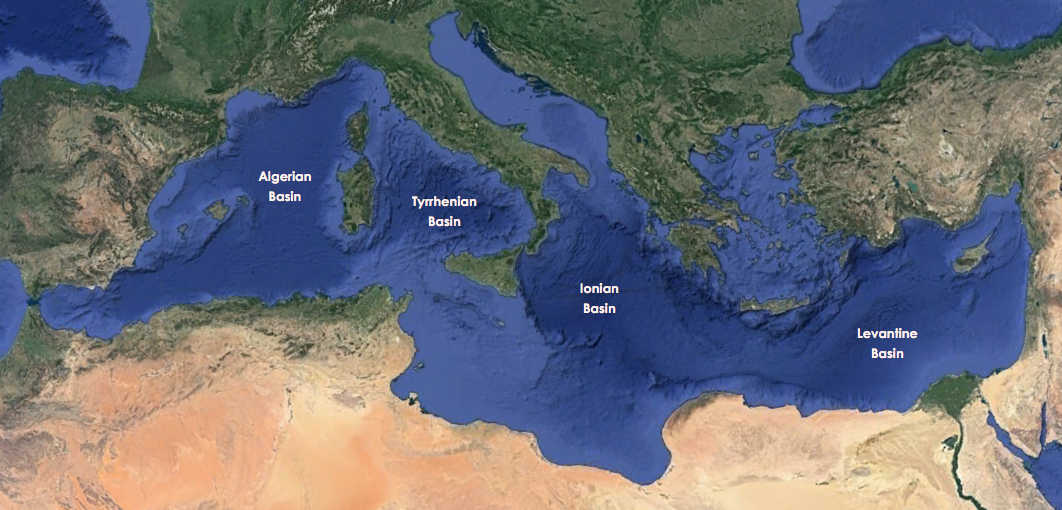The Mediterranean Sea is one of the most iconic bodies of water in the world, known for its rich history, vibrant cultures, and stunning landscapes. This sea has been a critical junction for trade, exploration, and cultural exchange for millennia. In this article, we will delve deep into the Mediterranean Sea, exploring its geographical significance, historical context, biodiversity, economic importance, and much more.
Stretching over 2.5 million square kilometers, the Mediterranean Sea connects three continents: Europe, Asia, and Africa. It is bordered by several countries, each boasting unique cultures and histories. From the ancient civilizations of Greece and Rome to the modern-day nations that line its shores, the Mediterranean has shaped the lives of millions.
In this comprehensive guide, we will cover various facets of the Mediterranean Sea, addressing its ecological importance, the effects of climate change, tourist attractions, and how it continues to influence global trade and politics. Whether you are planning a trip to the Mediterranean or simply wish to learn more about this magnificent sea, this article is your go-to resource.
Table of Contents
- Geography of the Mediterranean Sea
- Historical Significance
- Biodiversity in the Mediterranean
- Economic Importance
- Tourist Attractions
- Climate Change Effects
- Cultural Impact
- Conclusion
Geography of the Mediterranean Sea
The Mediterranean Sea is a unique body of water, characterized by its distinctive geographical features. It is surrounded by 24 countries and has numerous islands, with notable ones including Sicily, Sardinia, and Cyprus.
Key Geographical Features
- Length: Approximately 2,400 miles (3,860 kilometers)
- Average Depth: 1,500 meters (4,920 feet)
- Largest Gulf: The Gulf of Sidra
- Influential Straits: Strait of Gibraltar and the Dardanelles
The Mediterranean Sea is divided into several smaller seas, including the Adriatic Sea, Aegean Sea, and Tyrrhenian Sea. Each of these sections has its own unique characteristics and ecological systems.
Historical Significance
The Mediterranean Sea has played a pivotal role in the development of human civilization. Ancient cultures such as the Phoenicians, Greeks, and Romans flourished along its shores, using it for trade and transportation.
Major Historical Events
- Rise of the Minoan Civilization (circa 2000 BCE)
- Establishment of Greek city-states (8th century BCE)
- Roman Empire's expansion and control (27 BCE - 476 CE)
- The Crusades (1096 - 1291 CE)
These events not only shaped the Mediterranean region but also influenced global trade routes and cultural exchanges that still resonate today.
Biodiversity in the Mediterranean
The Mediterranean Sea is home to a rich array of marine life, with over 17,000 species recorded, including many endemic species found nowhere else on Earth.
Notable Marine Species
- Posidonia oceanica (seagrass)
- Caretta caretta (loggerhead sea turtle)
- Monachus monachus (Mediterranean monk seal)
- Dolphins and various fish species
This diversity makes the Mediterranean an essential area for marine conservation efforts, as many species are threatened due to overfishing and pollution.
Economic Importance
The Mediterranean Sea is vital to the economies of the countries it borders. It serves as a major shipping route, facilitating international trade.
Key Economic Activities
- Tourism: Millions of visitors flock to Mediterranean destinations each year.
- Fishing: A crucial source of livelihood for many coastal communities.
- Shipping: Major ports include Barcelona, Genoa, and Marseille.
The economic activities surrounding the Mediterranean Sea contribute significantly to the GDP of the bordering countries.
Tourist Attractions
The Mediterranean is renowned for its stunning landscapes, historical sites, and vibrant cultures, making it a premier tourist destination.
Top Destinations
- Amalfi Coast, Italy
- Santorini, Greece
- Barcelona, Spain
- Cape Town, South Africa (adjacent to the Mediterranean region)
Each of these destinations offers unique experiences, from historical tours to beautiful beaches, attracting millions of tourists every year.
Climate Change Effects
The Mediterranean region is particularly vulnerable to climate change, with rising sea levels and increased temperatures posing threats to its ecosystems and communities.
Impact on the Environment
- Increased temperatures affecting marine biodiversity
- Frequent droughts impacting agriculture
- Loss of coastal habitats due to erosion
Addressing these challenges is crucial for ensuring the sustainability of the Mediterranean Sea and its surrounding regions.
Cultural Impact
The Mediterranean Sea has profoundly influenced art, cuisine, and lifestyle across its bordering nations. The exchange of ideas and traditions has enriched the cultures of the region.
Notable Cultural Aspects
- Culinary Diversity: Mediterranean cuisine, known for its health benefits, includes olive oil, fresh vegetables, and seafood.
- Art and Literature: Many renowned artists and writers have drawn inspiration from the Mediterranean landscape.
- Festivals and Traditions: Unique cultural celebrations take place throughout the year, showcasing local customs.
Conclusion
In conclusion, the Mediterranean Sea is a treasure trove of history, biodiversity, and economic potential. Its influence spans across continents and cultures, making it an essential area for study and conservation. As we continue to explore and understand this remarkable body of water, it is crucial to advocate for sustainable practices to protect its future.
We invite you to leave a comment below sharing your thoughts on the Mediterranean Sea or any experiences you may have had there. Don’t forget to share this article with others who might find it interesting, and check out our other articles for more insights!
References
For further reading and reliable information, refer to the following sources:
- National Geographic: Mediterranean Sea
- UNESCO World Heritage: Mediterranean Region
- World Wildlife Fund: Mediterranean Biodiversity
Thank you for visiting our site, and we look forward to seeing you again for more informative content!




